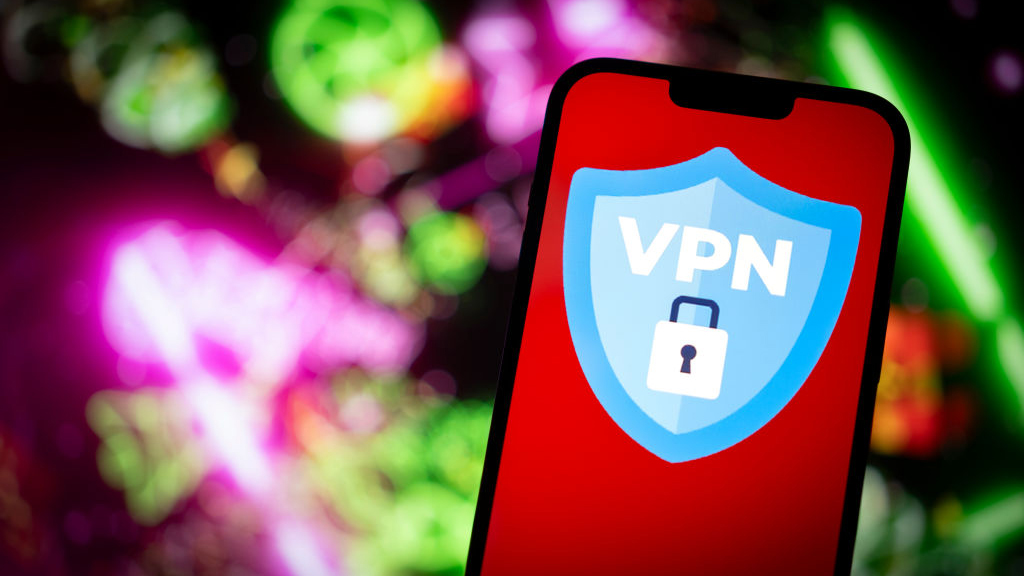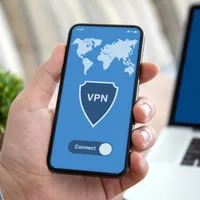The perception of lifetime VPN deals has changed, but are they really just "a true Ponzi scheme"?
Big scam or real bargain? Lifetime VPN deals are becoming a matter of smoke and mirrors

Sign up for breaking news, reviews, opinion, top tech deals, and more.
You are now subscribed
Your newsletter sign-up was successful
How long would you expect a lifetime VPN subscription to last? Forever, right? The promise of unending online privacy without renewal is tempting, though too often this proves not to be the case.
Certainly, it wasn't for all the VPNSecure customers who purchased one of its lifetime plans in recent years. After a change in ownership, VPNSecure lifetime users lost access to the service as the provider axed all lifetime plans on April 28, 2025.
Scouring forums, it became apparent this is not an isolated case, with several other examples of jaw-dropping 'lifetime' VPN deals merely providing long-term despondency rather than long-term dependence. So, are lifetime VPN plans a waste? Or worse, a scam?
Get the word out
Let's start by looking at the reasons why VPN providers may decide to offer lifetime deals in the first place.
Windscribe's co-founder and CEO, Yegor Sak, told TechRadar that they began offering these subscriptions in the first two years of the company's life, "as a means of getting the word out that Windscribe exists".
Like many other providers, the company did so through sites like StackSocial, which offer deals in one place and wide audience exposure for the product. The idea is simple – get some distribution on major tech news websites at zero marketing cost.
Proton, the provider behind Proton Mail and Proton VPN, took a different approach. The Swiss privacy firm told TechRadar first offered lifetime subscriptions during its 2014 crowdfunder campaign in a bid to raise the initial funds to get Proton Mail started.
"This allowed Proton to generate revenue and grow without relying on investors, something that has allowed us to stay independent, mission-driven, and allied to our users' needs ever since," a spokesperson told TechRadar.
Now, Proton offers only a handful of lifetime plans per year as prizes in the company's annual fundraiser.

TechRadar needs you! We want to know what you think about the world of VPNs. Whether you're a novice or a VPN pro, we want to hear your thoughts. Don't worry, though, your responses are completely anonymous, and it takes less than five minutes to complete!
To take part, click the link below: https://futurenet.questionpro.eu/tr-vpn
Every VPN provider we talked with agreed that while lifetime subscriptions may be a great way to get the company started, they cannot be a sustainable business model in the long term.
"Offering lifetime VPN subscriptions would be financially unfeasible and could compromise the VPN service quality," AdGuard VPN's Chief Product Officer, Denis Vyazovoy, explains
This is why, for example, AdGuard only offers lifetime deals on its ad-blocker, since the cost of maintaining this service is relatively low.
Commenting on this point, Sak from Windscribe said: "If most of your subscribers are on lifetime plans, which some VPN providers offer right on their own websites, this becomes a true Ponzi scheme, with company failure as the only option."
A short lifetime
It appears the secret recipe for successfully running lifetime VPN plans and not going bankrupt is knowing when to stop. Unfortunately, not all providers have managed to do that over the years.
VPNSecure is the latest example of a company closing shop and running with the money.
Specifically, a new owner acquired VPNSecure in 2023, allegedly discovering the thousands of ongoing lifetime plans only months after the acquisition. To stay afloat, it decided to deactivate all accounts starting April 28, 2025. It did so without warning or possibility of refund, understandably provoking a backlash.
While the VPNSecure case has also been characterized by poor management and communication, it perfectly shows the precarious life span of these plans as businesses evolve, get sold, or more.
vpnreviews from r/vpnreviews/comments/15py2zr/ivacy_lifetime_is_not_lifetime
It likely came as a very unpleasant surprise for Ivacy VPN's lifetime subscribers, discovering that the company's take on life was only five years – the typical "life cycle of a software," what the firm allegedly told a user who shared the reply on Reddit in 2023 (see post above).
Things got even more complicated for subscribers when Ivacy was bought from PureVPN a year later. We discovered many complaints about this transition, but after some back-and-forth messages, customers managed to renew for five extra years.
A five-year life span appears to be the universally accepted length of lifetime VPNs. Other complaints also show PureVPN's lifetime subscriptions regularly expire after this time. The customers are supposedly in charge of renewing, but this isn't always easy.
When approached for comment, PureVPN explained it never willingly offered lifetime plans.
"We offered 5 years, StackSocial packaged it as lifetime, they took the onus on themselves to deliver the lifetime claim. 5 years later, their position changed when renewals were due," said a PureVPN spokesperson.
It's worth noting that, while you can still find a lifetime PureVPN deal on StackSocial at the time of writing, this lacks the button to actually buy the product.
Keeping the promise
As not all VPNs are made the same, not all lifetime VPNs are a big scam meant to last less time than expected.
Lifetime should mean lifetime
Proton
Reliable providers like Windscribe and Proton confirmed to Techradar that they have been honoring the deals that their lifetime subscribers purchased in the past ever since.
"Lifetime should mean lifetime," said Proton, ensuring that existing lifetime users continue receiving new services and new features, with no degradation or time limits.
"We honor our lifetime plans, and have users who have been on them for close to 9 years now," said Sak from Windscribe. "Considering Windscribe grew quite a bit since then, and we made all the upgrades available to the lifetime users at no cost, that was a hell of a deal."
Even NordVPN, which offered a few lifetime subscriptions about 10 years ago for a week as part of a limited test, said that the company continues to provide these users with the full service.
"NordVPN has always maintained transparency with our users," said Marijus Briedis, CTO at NordVPN. "Regardless of the subscription period our users choose, our focus remains the same: providing secure, reliable service, no matter their plan of choice."
Bottom line
As we have seen, lifetime VPNs are often uncertain deals that will leave customers with a sour taste rather than the unlimited online privacy advertised.
Commenting on this, Surfshark's Chief Operating Officer Dovydas Godelis said: "Some users knowingly choose free VPNs, fully aware that their data may be the price they’re paying. It’s a similar mindset with lifetime subscriptions, with some people just willing to take the risk."
That said, some VPN firms are still committed to taking on the burdens of what a lifetime subscription literally means.
We recommend you look at these offers with the same critical eye you'd use for other online purchases. Do your research before clicking the buy now button to avoid disappointment.
In most cases, however, you might be better off opting for a cheap VPN or a reliable free VPN instead. TechRadar suggestions at the time of writing are Surfshark (which has never offered lifetime subscriptions) and Privado VPN, respectively.
You might also like

Chiara is a multimedia journalist committed to covering stories to help promote the rights and denounce the abuses of the digital side of life – wherever cybersecurity, markets, and politics tangle up. She believes an open, uncensored, and private internet is a basic human need and wants to use her knowledge of VPNs to help readers take back control. She writes news, interviews, and analysis on data privacy, online censorship, digital rights, tech policies, and security software, with a special focus on VPNs, for TechRadar and TechRadar Pro. Got a story, tip-off, or something tech-interesting to say? Reach out to chiara.castro@futurenet.com
You must confirm your public display name before commenting
Please logout and then login again, you will then be prompted to enter your display name.
